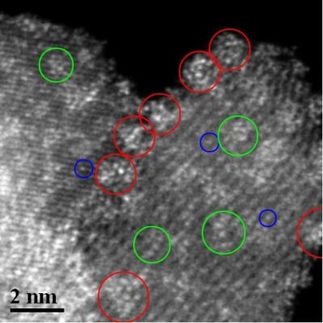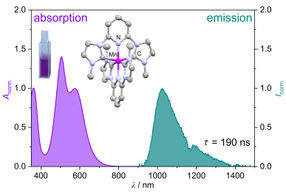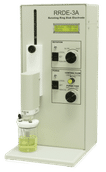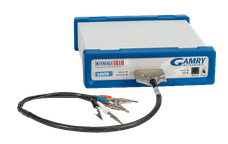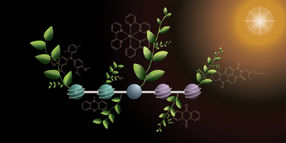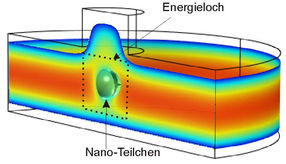ETH Zurich and the IBM Zurich Research Laboratory - strategic partnership in nanotechnology
Advertisement
ETH Zurich and the IBM Zurich Research Laboratory (ZRL) have today announced the establishment of a strategic partnership in nanotechnology. The two partner institutions will operate a new, common nanotech laboratory, which will be built on the ZRL campus. The new building inludes cutting-edge research infrastructure and will cost 90 mil-lion USD. The two partners have a long-standing tradition of scientific cooperation, and now make an important step to deepen this collaboration further by forming a strategic partnership in the field of nanotechnology. The collaborative project was revealed at a joint media conference in Zurich by Prof. Ralph Eichler, President of ETH Zurich, and John E. Kelly III, Senior Vice-President and Director of IBM Research. As part of this collaboration, a new building with cutting-edge research facilities will be constructed on the campus of the IBM Zurich Research Laboratory in Rüschlikon (CH), with the laying of the founda-tion stone scheduled in spring 2009, and the start of research activities in 2011. A value-add for Swiss industry "This nanotech lab will have a strong value-add, not only for the participating institu-tions, but for Swiss industry as a whole", said Professor Ralph Eichler, "as we are open to collaborations with Swiss companies and research institutes". With EMPA - the Swiss interdisciplinary research institution for material sciences and technology devel-opment - one additional partner for collaboration is already involved. The collaboration brings with it considerable potential for the creation of new production techniques from which Switzerland, with its sizeable community of SMEs, will profit. The nanotech lab will make world-beating research possible, but the partnership itself is also innovative. "By creating this common research center, IBM is expanding a collabo-rative and cooperative research program aimed at accelerating our understanding and implementation of nanotechnology and its broad range of applications", said Dr. Kelly. "We see this type of collaboration as an emerging model for future industry-academic partnerships". New building - shared infrastructure The two institutions will focus on research in various fields of nanotechnology, ranging from exploratory and basic research to applied and near-term projects. Several areas for joint research projects have been identified, such as carbon-based materials, nano-photonics, spintronics, nanowires, and tribology. The novel concept of a shared re-search facility with more than 900 m2 of cleanroom area will be built in the nanotech lab with three sections: one each for exclusive use by IBM and ETH Zurich, as well as an area that both partners will share. The costs of the new building amount to 90 million USD, of which 30 million USD alone will be dedicated to cutting-edge infrastructure. The partners will share expenditure for infrastructure; the building investment itself will be undertaken by IBM. ETH Zurich will rent the space and share the operations costs with IBM. The strategic partnership is intended to be in place for at least 10 years. Apart from joint research activities each partner institution is free to pursue its own projects. For ETH Zurich the new Nanotech Lab on the IBM campus at Rüschlikon is a perfect complement to the existing research infrastructure at ETH Zurich Hönggerberg and city-located sites. An important aspect of the new center is the unique opportunity for ETH Zurich students to pursue their research in close collaboration with an industrial partner, which is an important asset in ETH Zurich's engineering education. Key technology of the 21st century Today numerous products based on nanotechnology are on the market already, and many more are being developed. Nanotechnology defines a technology that utilizes functions at an extraordinarily small-size scale. It focuses on structures and processes in dimensions below 100 nanometers - approximately 400 times thinner than a human hair. At the scale of nanometers, many fundamental processes of biology, chemistry and physics occur and can be controlled in unprecedented ways, offering astonishing new perspectives in many disciplines. Nanotechnology is an enabling technology which is expected to spark advances in vari-ous fields. These include advanced functional materials, nanoelectronics, information and communication technology, sensing, tools, healthcare and life sciences, and energy technology. In particular, nanotech applications in the energy sector, such as more effi-cient use of solar energy, or new ways of water treatment, might even help to tackle some of the biggest challenges of our time. With its research at ETH Zurich and the IBM Zurich Research Lab, Zurich is one of the hotspots of quantum mechanics and nano research. And this is so for an excellent rea-son: ground breaking concepts in quantum mechanics have been formulated by ETH physicist and Nobel Laureate, Wolfgang Pauli. Gerhard Binning and Heinrich Rohrer received the Nobel Prize in Physics in 1986 for the development of the scanning tunnel-ing microscope at the IBM Zurich Research Lab. This instrument allowed the first look into the world of atoms, thus throwing the door to nanotechnology research wide open. A lot of potential nevertheless still remains to be unlocked. With the new lab, ETH Zurich and ZRL are determined to bring nanotechnology to the next level.



